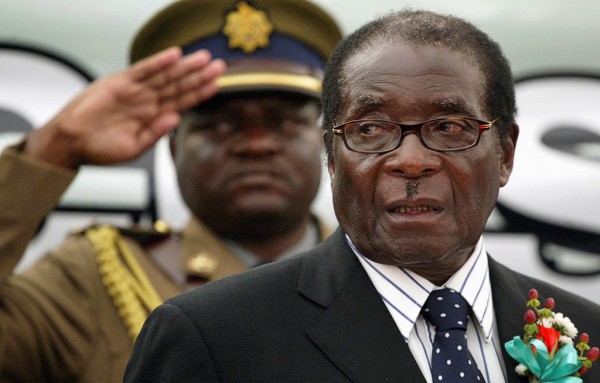The former strongman was pictured with the retired general who will take on the ruling Zanu-PF in this year’s election.
Source: ‘Panic’ as Mugabe appears to back new Zim opposition – ENCA
Two days later Zanu-PF Youth League supporters chanted “down with Mugabe” at a rally, a rare outburst from the normally disciplined members of the party that Mugabe led for nearly four decades.
A leader of the league, Pupurai Togarepi, later said that if Mugabe “is not responsible, we are going to look at him as a new enemy”.
In response to the hostility, the new president did little to defend the man who was once presented by Zanu-PF to the world as a liberation hero and father of the nation.
“There is an issue regarding the former president,” said President Emmerson Mnangagwa.
“Currently we see in the media various speculations about his activities… we are not happy with what the media is saying. We don’t know whether it’s correct or not but it is an issue we are examining.”
‘Understated panic’
“(The photo) sort of solidifies the whole idea that the Mugabe family is behind the project,” said Gideon Chitanga, an analyst with the Johannesburg-based regional think-tank Political Economy Southern Africa, describing Mugabe’s meeting with Mutinhiri as “very cordial”.
Other analysts said that Mnangagwa had every reason to be concerned by Mugabe’s sudden re-emergence on the political scene.
“There is an understated panic – especially within Zanu-PF,” said Zimbabwean political analyst Brian Kagoro, who added that the ruling party had already struggled to formulate a response to the opposition following the death of its figurehead Morgan Tsvangirai in February.
“It would have been a much easier task to concentrate on infiltrating the (opposition) – but now they have to deal with uncertainty as to who is with them,” said Brian Kagoro, a director of the UHAI Africa think-tank.
Mugabe was forced to quit when the military briefly took power in November and Zanu-PF lawmakers launched impeachment proceedings against their once beloved leader. Since his dramatic reversal of fortune, he has largely appeared to stay out of public life.
The military moved against Mugabe, 94, after he sacked his then-deputy and heir-apparent Mnangwga apparently fearing the nonagenarian was grooming his wife Grace to succeed him as president.
“There is a fight for legitimacy among the retired military supremos,” said Kagoro, who suggested that Mugabe was behaving with “grand malice” over his treatment.
AFP

COMMENTS